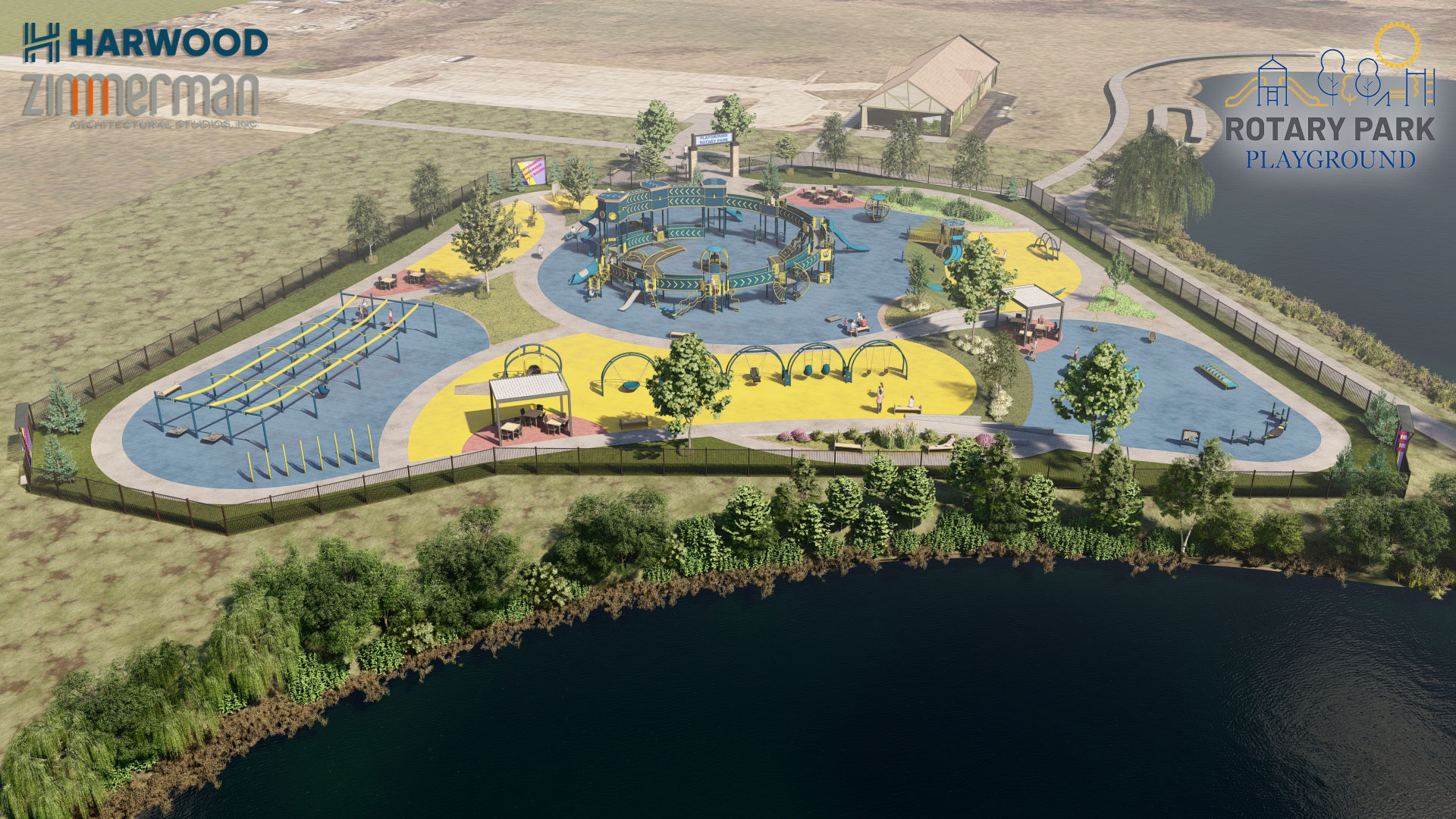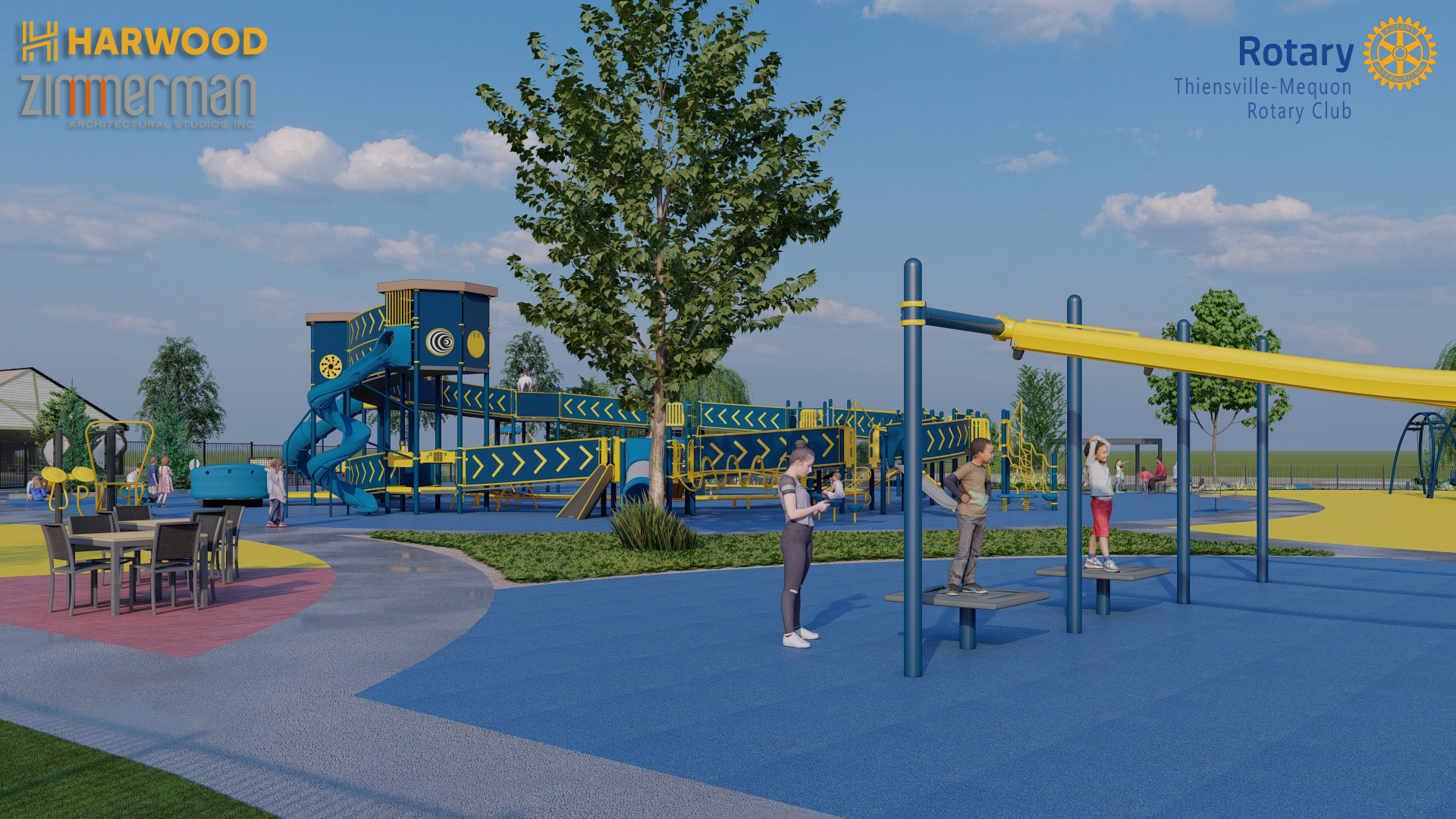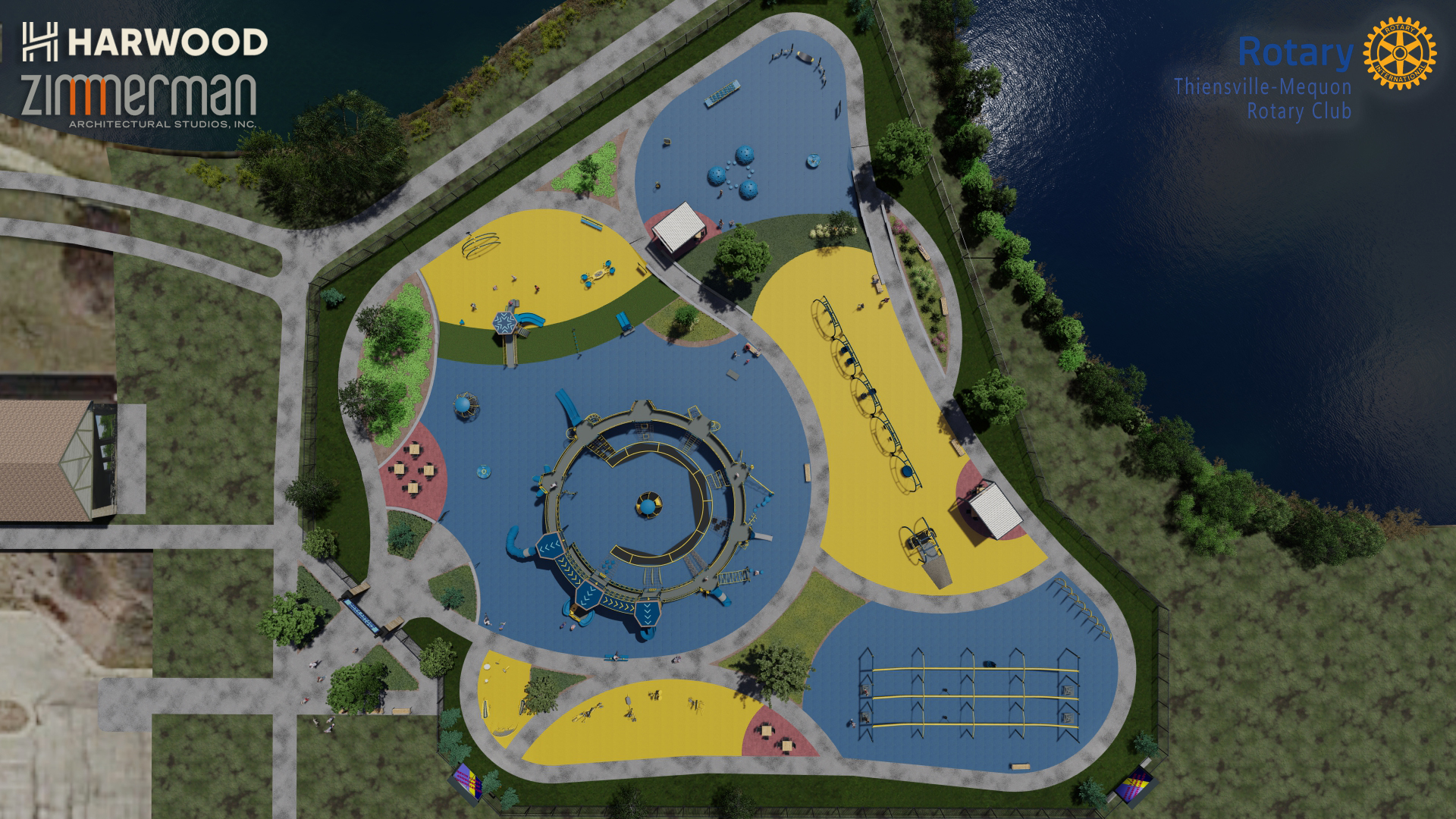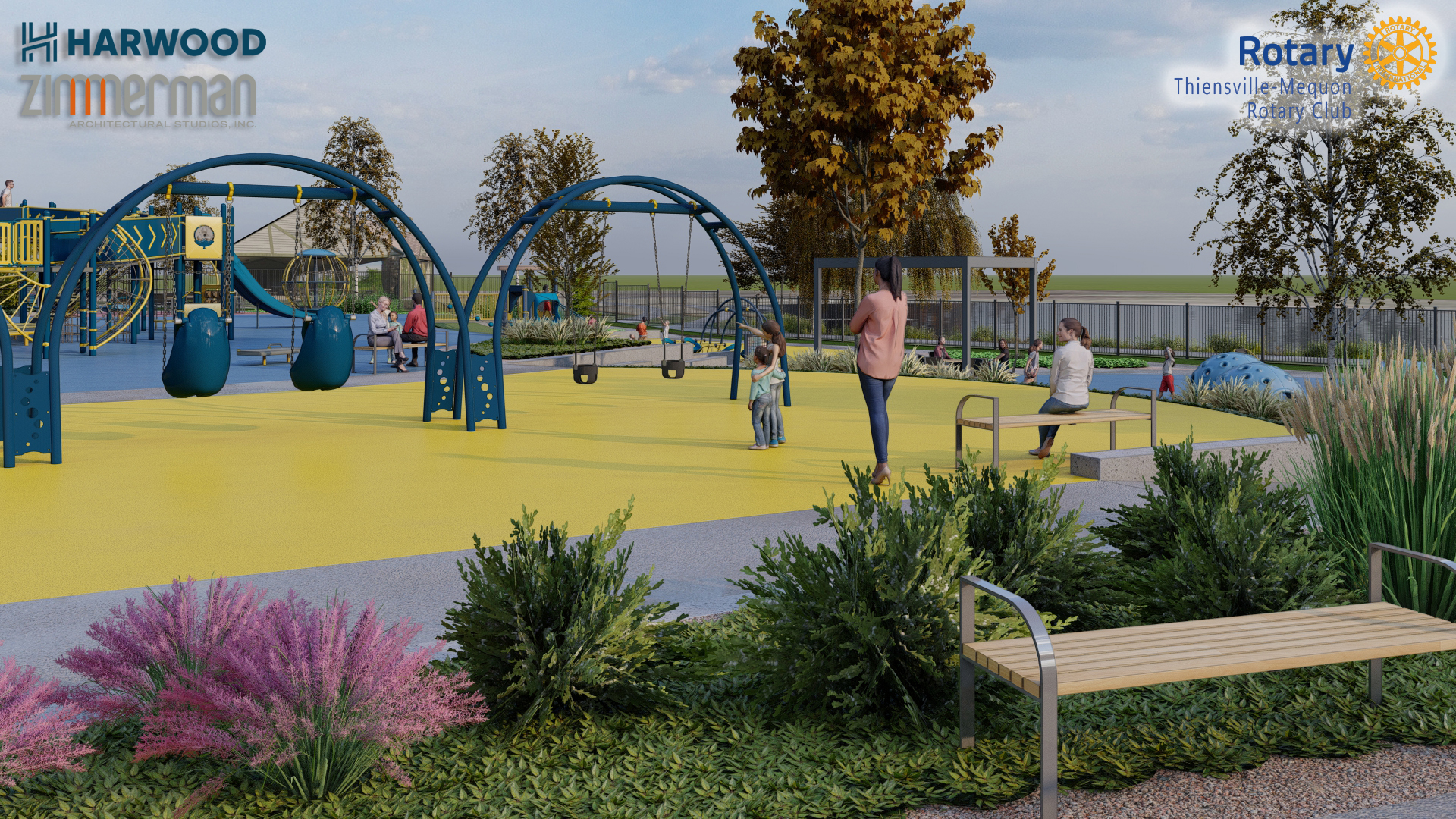THE NEED
The benefits of an All-User Playground may be obvious to many Mequon and Thiensville residents—and the City of Mequon and the Village of Thiensville agree. A recent Playground Safety and Needs Analysis recommended building an updated playground equipped for children with special needs. Across the country, All-User Playgrounds are becoming the standard in new community playgrounds and are consistently the most popular among residents.
Many playgrounds in Mequon parks are over 30 years old, with some originally installed equipment as donations. An upgrade is long overdue.
Play is essential for children's development. It fosters creativity, encourages experimentation, and teaches important social and communication skills. It also supports cognitive, physical, social, and emotional well-being. For parents and grandparents, play provides a meaningful opportunity to engage with their children.
For adults, play isn’t just fun—it’s beneficial. Engaging in playful activities helps reduce stress, improve mood, and promote relaxation. Studies show that play triggers endorphin release, lowers cortisol levels, and enhances overall well-being.

CONSIDER THESE NUMBERS
88%
of Americans believe communities should provide playgrounds for people of all abilities
74%
of parents believe it is important for their children to play with a variety of kids, including those with special needs
40%
of grandparents provide childcare for their grandchildren
1 in 31
children have Autism Spectrum Disorder and the autism rate is growing by 15% a year, making it the fastest growing disability
5-16%
of children are affected with Sensory Processing Disorder
1 in 323
babies are born having cerebral palsy
1 in 700
babies are born with Down syndrome every year
20-28%
of 6- to 17-year-olds meet the recommended 60 minutes of daily physical activity
PROJECT SUMMARY
Located in the scenic 95-acre Mequon Rotary Park, the All-User Playground will be adjacent to the south pavilion at 4100 Highland Road in Mequon.
Designed by Gerber Leisure and Zimmerman Architectural Studios, the playground will feature a large central structure with ramps, slides, and climbing elements. Surrounding it will be swings— including a wheelchair-accessible swing—sliders, archways, mounds, exercise equipment, and a variety of other play structures. The design also includes internal pathways, landscaping, benches, and shaded rest areas, all thoughtfully integrated to complement the park’s natural landscape.

WHAT IS AN
ALL-USER PLAYGROUND?
Playgrounds are a vital part of a community’s social infrastructure—one of the few places where children can play freely and safely. Every child deserves a space where they can be a superhero, a sports champion, or a soaring bird; where their imaginations can run wild, friendships can form, and confidence can grow through new challenges.
The location, design, and equipment of a playground can either encourage or limit play. For children of all abilities, the thrill of movement and the joy of social connection make playgrounds special. While most children share a natural urge to play, some face barriers due to physical, sensory, or cognitive challenges.
That’s why great playgrounds must be designed with all children in mind—including those with special needs. Inaccessible playgrounds can prevent children, parents, and grandparents who use wheelchairs or walkers from fully participating. Families affected by ADHD or Autism Spectrum Disorder may find traditional playgrounds overwhelming due to a lack of quiet retreat spaces.
The Rotary All-User Playground isn’t just for kids—it’s designed for adults of all ages, too. More than just swings and slides, this vibrant space will encourage movement, interaction, and overall well-being. By blending physical activity, social engagement, and stress relief, the playground redefines play as a powerful tool for personal growth and community connection.
Parents and grandparents will have the opportunity to engage with their children in new and meaningful ways—whether by joining in on the fun or simply enjoying the space together, rather than watching from the sidelines.
An inclusive playground goes beyond basic accessibility—it creates meaningful play experiences that engage children of all abilities, ensuring that every child has a place to belong, explore, and thrive.





